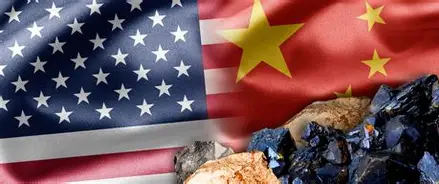By Innovation Times Global Trade Desk
October 14, 2025 | Brussels / Beijing
The European Union has raised fresh concerns over China’s restrictions on rare-earth exports, warning that the new controls could threaten global supply chains and Europe’s green energy transition.
Speaking at a press briefing in Brussels on Monday, EU Trade Commissioner Valdis Dombrovskis said the bloc views Beijing’s latest export rules as a “critical concern” that could have “serious consequences for European industries dependent on advanced materials.”
“These restrictions risk undermining the global balance of supply and demand for key minerals,” Dombrovskis said. “Europe cannot afford to be overly dependent on any single source, especially when it comes to materials essential for our clean-tech and defense sectors.”
China, which dominates global production of rare-earth elements used in electric vehicles, wind turbines, semiconductors, and military technologies, introduced new export licensing requirements earlier this year. Officials in Beijing described the move as a matter of “national security” and an effort to ensure “responsible and sustainable resource management.”
The EU, however, interprets the restrictions as a strategic maneuver that could give China greater leverage in trade negotiations amid ongoing disputes over tariffs, technology transfers, and market access.
European industries are particularly exposed to rare-earth disruptions, with automakers, renewable energy firms, and defense manufacturers relying heavily on imports from China. Analysts warn that even short-term supply disruptions could slow production and raise costs across multiple sectors.
“The implications go far beyond Europe,” said Dr. Isabelle Fournier, an economist at the European Policy Centre. “Rare-earths are the backbone of the global energy transition. Any significant export limitation from China could ripple through the world economy.”
In response, the European Commission is accelerating efforts to diversify its supply chains, including new partnerships with resource-rich nations such as Canada, Australia, and several African countries. The bloc is also investing in recycling technologies and domestic exploration projects to reduce its dependence on Chinese imports.
Meanwhile, Chinese officials have dismissed accusations of economic coercion. In a statement from the Ministry of Commerce, Beijing said its policies align with international norms and are “aimed at ensuring fair use and environmental sustainability.”
The rare-earth issue comes at a sensitive time in EU-China relations, already strained by disputes over electric vehicle subsidies, trade deficits, and human rights concerns. European leaders are expected to raise the topic during the next EU-China summit in November.
“We remain open to dialogue,” Dombrovskis said. “But Europe must also be prepared to act decisively to protect its strategic interests and industrial resilience.”



